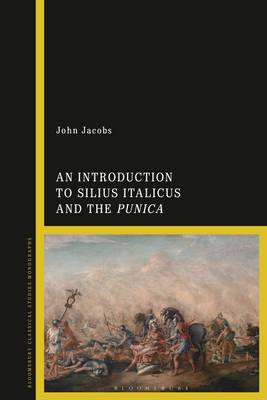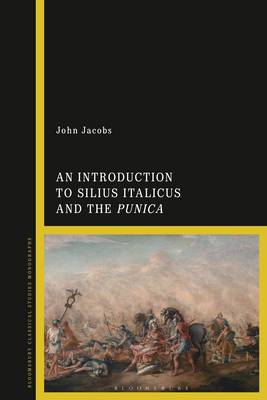
- Afhalen na 1 uur in een winkel met voorraad
- Gratis thuislevering in België vanaf € 30
- Ruim aanbod met 7 miljoen producten
- Afhalen na 1 uur in een winkel met voorraad
- Gratis thuislevering in België vanaf € 30
- Ruim aanbod met 7 miljoen producten
Omschrijving
In a much-needed comprehensive introduction to Silius Italicus and the Punica, Jacobs offers an invitation to students and scholars alike to read the epic as a thoughtful and considered treatment of Rome's past, present, and (perilous) future. The Second Punic War marked a turning point in world history: Rome faced her greatest external threat in the famous Carthaginian general Hannibal, and her victory led to her domination of the Mediterranean. Lingering memories of the conflict played a pivotal role in the city's transition from Republic to Empire, from foreign war to civil war. Looking back after the events of AD 69, the senator-poet Silius Italicus identified the Second Punic War as the turning point in Rome's history through his Punica.
After introductory chapters for those new to the poet and his poem, Jacobs' close reading of the epic narrative guides students and scholars alike through the Punica. All Greek and Latin passages are translated to ensure accessibility for those reading in English. Far more than simply a retelling of Rome's greatest triumph, the Punica challenges its reader to make sense of the Second Punic War in light of its full impact on the subsequent course of the city's history.Specificaties
Betrokkenen
- Auteur(s):
- Uitgeverij:
Inhoud
- Aantal bladzijden:
- 288
- Taal:
- Engels
Eigenschappen
- Productcode (EAN):
- 9781350191679
- Verschijningsdatum:
- 30/06/2022
- Uitvoering:
- Paperback
- Formaat:
- Trade paperback (VS)
- Afmetingen:
- 156 mm x 234 mm
- Gewicht:
- 399 g

Alleen bij Standaard Boekhandel
Beoordelingen
We publiceren alleen reviews die voldoen aan de voorwaarden voor reviews. Bekijk onze voorwaarden voor reviews.







